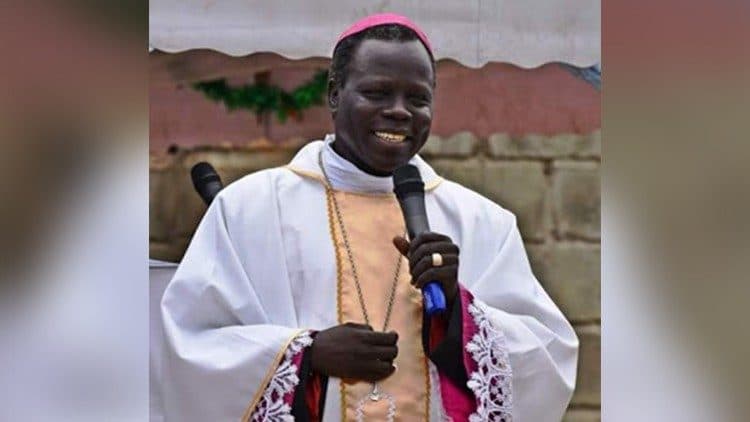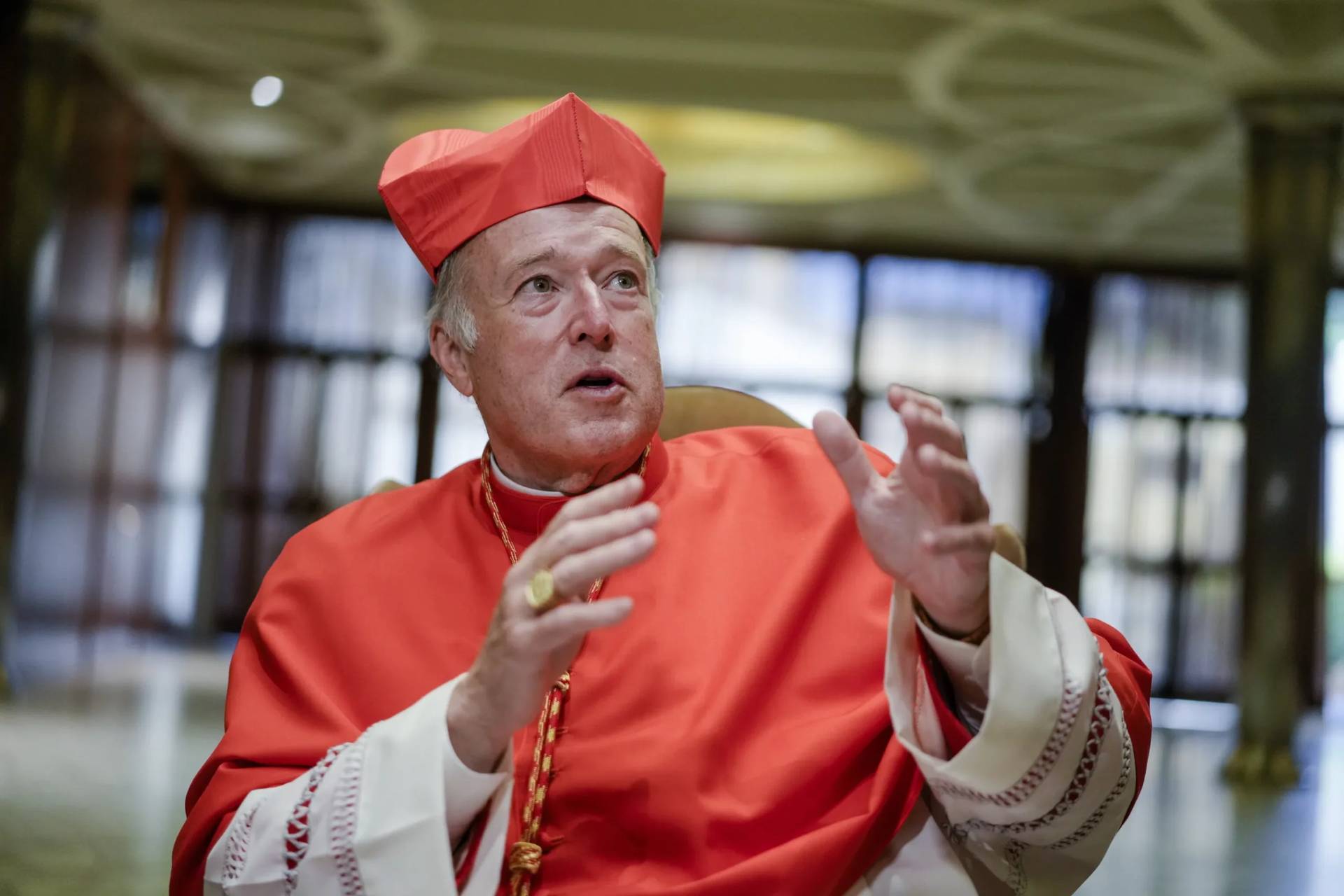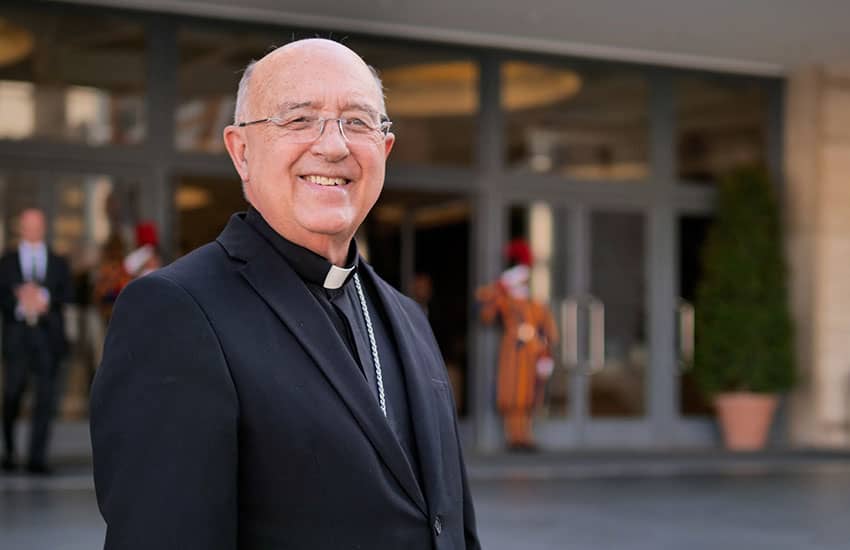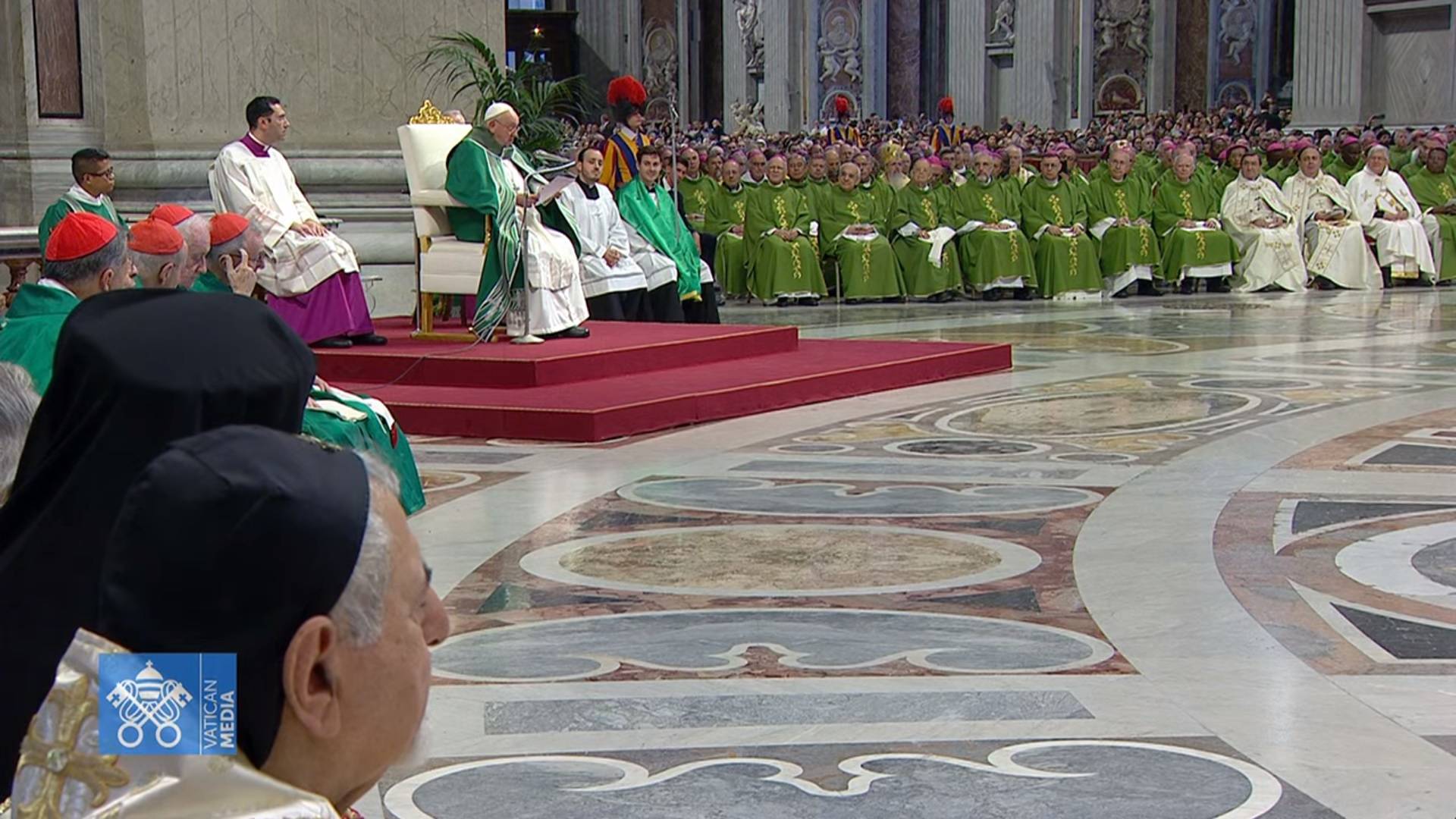ROME – South Sudan’s new cardinal, who got his red hat from Pope Francis Saturday, voiced hope that the honor would help advance the country’s peace process, and said he has nothing to fear from the upcoming Synod of Bishops despite tensions over certain topics of discussion.
Speaking to journalists during a Sept. 29 press point ahead of Saturday’s consistory, Cardinal Stephen Ameyu Martin Mulla, who has been Archbishop of Juba since 2020, said he feels unworthy of his appointment, which “put us in the spotlight.”
“I really thank the Holy Father for his important initiative for bringing people together, people from the marginalized part of the world, he wants us to bring people inside. I think that my appointment as a cardinal is like bringing people, our people from the margins to the mainstream Church. That is how I see it,” he said.
Mulla welcomed Pope Francis to Juba in early February, during the pope’s visit to the Democratic Republic of Congo and South Sudan, a visit largely intended to promote peace in the war-torn countries and to condemn the exploitation of Africa’s natural resources.
The world’s youngest country, South Sudan gained its independence in July 2011, after a lengthy war with neighboring Sudan.
However, conflict erupted in South Sudan just two years later, in December 2013, between different factions of the government, who were divided along tribal lines, throwing the new country into its own, internal full-on war.
An attempted ceasefire in 2014 failed to stop the fighting, and likewise, a 2015 “Compromise Peace Agreement” also fell through and fighting continued. Several other opposition groups then popped up, furthering the violence and bloodshed, as easy access to weapons compounded local disputes.
Poverty and hunger are rampant as a result of the conflict, with around one million people experiencing high food insecurity in conflict areas, and millions of children lacking education.
Mulla told journalists that he will “work tirelessly in order to bring peace to South Sudan, and to our neighbors,” and also addressed concerns regarding the upcoming Synod of Bishops on Synodality, set to take place from Oct. 4-29.
Asked whether he is afraid of certain topics that will be discussed, which include women’s priestly ordination, clerical celibacy, and outreach to the LGBTQ+ community, Mulla said, “I’m not afraid at all” because the Holy Spirit is guiding the process, and will ensure “that something which is not good will not enter inside.”
Below is a transcript of Mulla’s brief conversation with journalists.
What does your appointment mean to you personally, but also to South Sudan at this point in its history?
Mulla: For me, I think this appointment helps to put us in the spotlight. The visit of the Holy Father to South Sudan also put us in the spotlight. I know it is not easy to be appointed to this office, as a cardinal, but I am always expected to do, I am expected to serve the people of God, I have been serving the Church before, and I hope that through this new office, I will serve the Church in a better way.
What I remember, I am not worthy, and our people are not worthy of this office, because we are a newly born country, and to be elevated to the whole club is not an easy thing. But I really thank the Holy Father for his important initiative for bringing people together, people from the marginalized part of the world, he wants us to bring people inside. I think that my appointment as a cardinal is like bringing people, our people, from the margins to the mainstream Church. That is how I see it. So that we can serve the Holy Father, we can serve the Church, within the office of the cardinal.
I told my people, it is not one person raised to be a cardinal, it is not Bishop Stephen Mulla who is a cardinal, all of us in South Sudan have become cardinals, so we need to behave well, and we need to progress well, so it is an initiative.
Do you think your appointment will bring fresh impetus to the peace process?
I hope. I will work tirelessly in order to bring peace to South Sudan, and to our neighbors. I have already been working there for local peace initiatives, all of my time as a bishop, I’ve always been working in order to bring people together. I hope that this time, with the office of a cardinal, I will give more service to bringing peace to our people, among our people, in our nation, and also in our neighbors, I hope.
What does the synod mean for you and for African countries? Are you afraid of some topics that will be discussed?
I’m not afraid at all, because the synod, what does it mean? A synod is defined already, it is for communion, it is for participation, and so, if all of us would like to participate in a better way in this Church, I am not afraid of anything, because we think that the Holy Spirit is there in the Church, among the fathers of the synod, and the Holy Spirit will give us direction so that something which is not good will not enter inside. We hope the Holy Spirit will really establish that connection. God, our father, does not abandon his Church, it is the Church of Christ.
It is not the first synod, maybe many thousands of synods have passed, and this one will also come and go. Let us not be afraid of some things that will be decided in the synod. I don’t think so. We hope that the synod will really enrich all of us together, and I hope that no one will be angry about the outcome of the synod.
What does the synod mean for the church of South Sudan?
For us in South Sudan, I think it is very important. Every time the Church would like to renew itself, it is always through the synod. This synod has already been debated at the grassroots level in the parishes, in the pastoral regions, and at the diocesan level, and then at the conference level. We have done it and so we have given our suggestions. It is like growing together. I hope that our suggestions will also be embraced. What my local church is preoccupied with, I hope it will also be accepted. I hope. So, I hope that the synod will bring a positive outcome, I hope.
What were your suggestions to the synod?
Unless you would like me to make a particular suggestion, all in all I know it is good to have a positive attitude regarding the synod. At the local level, we have proposed positive things that can help our life back in South Sudan or back in Africa. We want to grow together; we want to move together. Remember, this synod is more unique because it is no more a synod for the bishops alone, it is, I think, a synod for all of us.
Follow Elise Ann Allen on X: @eliseannallen

















